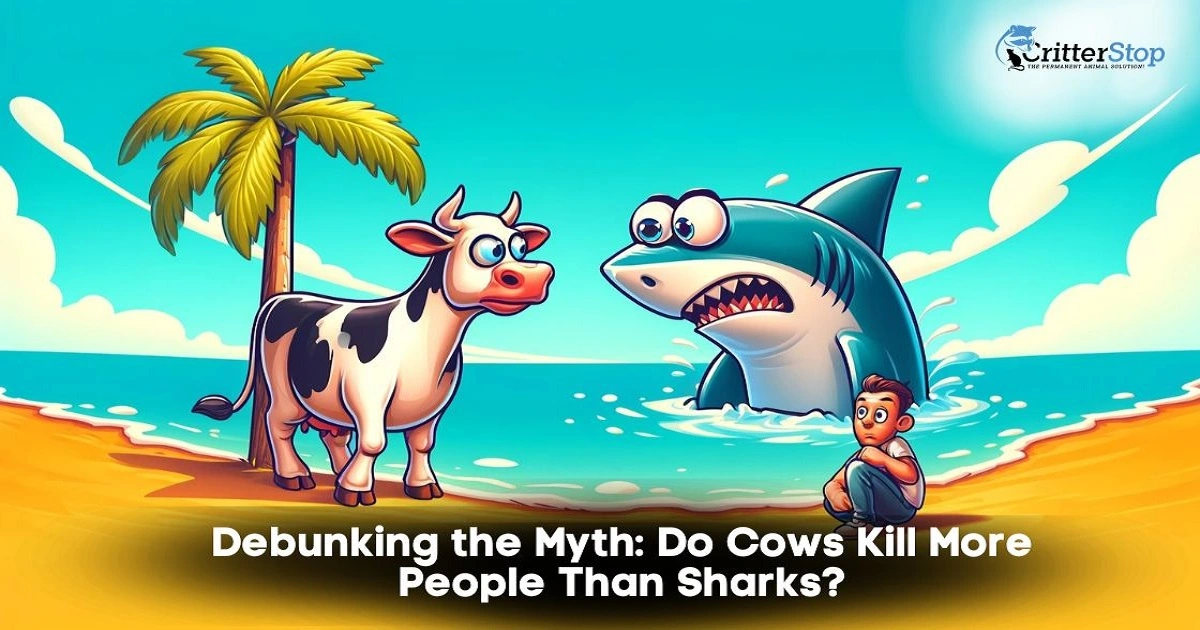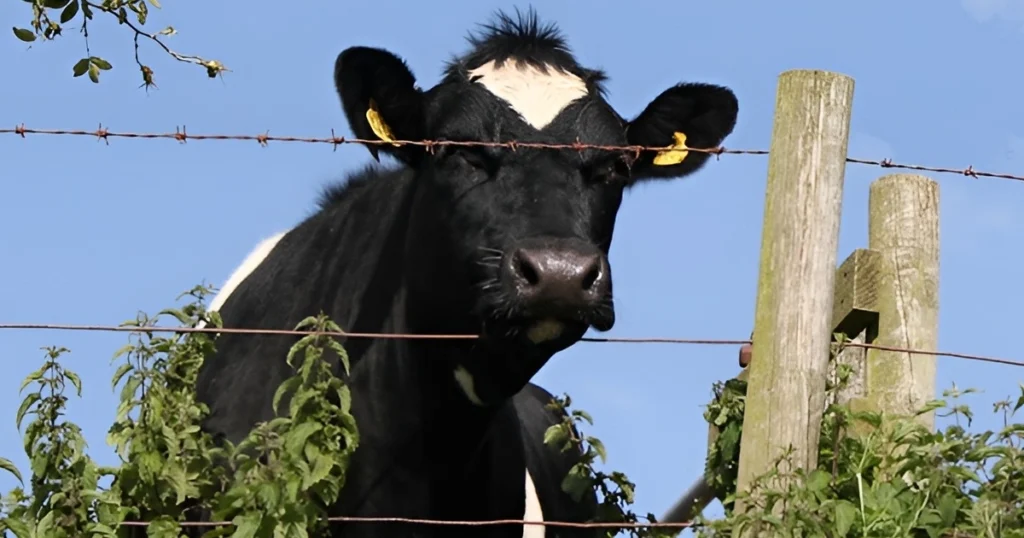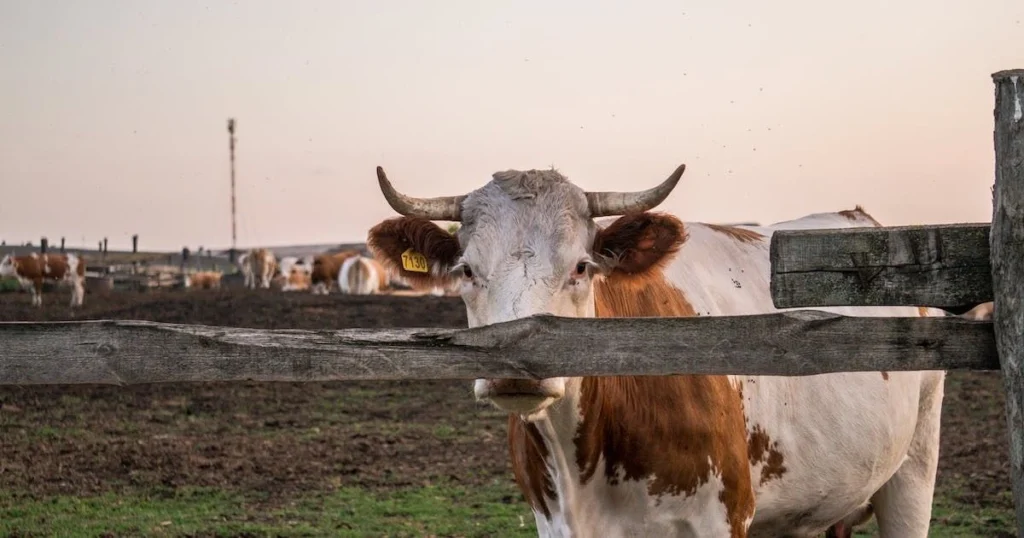
In the realm of animal-related fatalities, a common question arises: do cows kill more people than sharks? This inquiry, often fueled by sensationalized media coverage and urban legends, warrants a thorough examination to dispel myths and uncover the truth behind these contrasting perceptions of risk. In this comprehensive analysis, we delve into the data, dissect the factors influencing risk perception, and explore the role of education and safety measures in mitigating potential dangers.
Do cows kill more than sharks? Cattle, commonly perceived as gentle giants, can pose risks due to their size and unpredictability. While less publicized, incidents involving cows occur with surprising frequency, particularly in agricultural settings. Trampling, charging, or handling mishaps contribute to cow-related fatalities, primarily affecting farmers, ranchers, and agricultural workers.
Contrary to their fearsome reputation, shark attacks are relatively rare occurrences. Despite sensational media coverage, sharks typically avoid human encounters and pose minimal threat to humans. However, when interactions do occur, they can lead to severe injuries or fatalities. Misconceptions perpetuated by media sensationalism contribute to the exaggerated fear of shark attacks.

Analyzing statistical data reveals intriguing disparities between cow-related fatalities and shark attacks. While cows contribute to a higher number of fatalities due to frequent interactions in agricultural settings, shark attacks, though infrequent, garner significant media attention, shaping public perception.
Media portrayal significantly influences perceptions of risk associated with cows and sharks. Sensationalized reporting of rare shark attacks amplifies fear, overshadowing the more prevalent but less publicized cow-related incidents. Conversely, cow-related fatalities, despite their higher frequency, receive less media coverage, leading to underestimated risks.
Human cognition is susceptible to biases that skew risk perception. The availability heuristic leads individuals to overestimate the likelihood of events based on their ease of recall. Media emphasis on shark attacks makes them more salient in people's minds, overshadowing the more prevalent cow-related incidents.
One prevailing myth asserts that cows are inherently harmless creatures. While they exhibit docile behavior in many instances, cows possess the potential for aggression under certain circumstances. Factors such as maternal instinct, territoriality, or stress can provoke defensive reactions, leading to accidents.
Another myth perpetuates the image of sharks as ruthless man-eaters. Shark attacks are often cases of mistaken identity or defensive behavior. Most shark species pose minimal threat to humans, preferring prey items such as fish or marine mammals.

In agricultural communities, safety programs play a vital role in preventing cow-related incidents. Training initiatives educate workers on proper handling techniques, hazard identification, and emergency response protocols.
Similarly, marine conservation initiatives aim to promote coexistence between humans and sharks. Educational campaigns raise awareness about shark behavior, habitat conservation, and responsible oceanic practices. These efforts contribute to safer interactions between humans and marine wildlife by fostering mutual understanding and respect.
In conclusion, dispelling myths and understanding the nuanced realities of cow-related incidents and shark attacks are essential for fostering informed decision-making and risk management. We can navigate these environments with greater confidence and security by acknowledging the factors influencing risk perception, implementing appropriate safety measures, and promoting education and awareness.
Critter Stop is a professional humane wildlife removal company with expertise in handling wildlife-related concerns. Its commitment to safety and professionalism ensures effective solutions for wildlife encounters. Critter Stop provides free inspections and expert advice for individuals facing wildlife-related concerns. Contact Critter Stop at (214) 234-2616 for humane wildlife removal services.
Let's address some common queries surrounding the comparison between cow-related fatalities and shark attacks. With authoritative insights, we clarify the risks associated with interactions with cows and sharks, empowering readers to make informed decisions about safety measures and awareness.
Yes, cows have the potential to cause fatalities, primarily in agricultural settings where interactions between humans and cattle are frequent. While cows are generally docile, certain circumstances, such as stress or protective instincts, can lead to aggressive behavior, resulting in accidents.
Contrary to popular belief, cows contribute to more fatalities than sharks yearly. Despite their gentle demeanor, incidents involving cows, such as trampling or charging, occur with surprising frequency, particularly in agricultural environments. The number of death by cows per year worldwide is unclear, but the number is larger than death by sharks.
The exact number of fatalities caused by cows varies annually and by region. However, agricultural statistics consistently show that cows are responsible for many fatalities worldwide. Proper safety measures and awareness can help mitigate the risks associated with cow-related incidents.
While specific data on the number of individual cows involved in fatal incidents is not readily available, the cumulative effect of cow-related fatalities underscores the importance of understanding and addressing potential risks associated with cattle interactions.
The rate of cow death per year varies depending on factors such as agricultural practices, population density, and safety protocols. However, agricultural statistics indicate that cow-related fatalities occur with notable frequency, highlighting the need for awareness and preventative measures in farming and ranching communities.
For expert assistance with wildlife or pest removal from your property, contact Critter Stop at (214) 234-2616 for a free inspection. Critter Stop has a fantastic reputation, and customer reviews online because it provides high-quality work and great customer service.
Visit our Critter Library and learn more about our furry friends